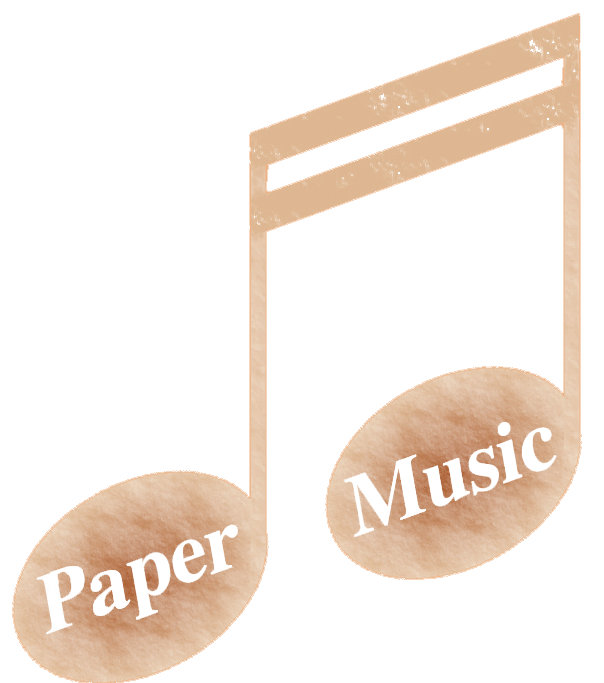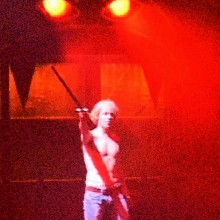Sigurd the Dragon Slayer was commissioned by The Royal Danish Opera in 2005
Libretto: Bent Nørgaard
First performance: March 18, 2006
First Cast: Sigurd: Gerd Henning-Jensen, The Raven: Djina Mai-Mai, Regin: Jens Bruno Hansen, Fafner: Andres Jacobsson, LINensemble with Frans Hansen
Solo voices: Soprano, Tenor, Baritone, Bass
Orchestra: Piano, Cello, Clarinet/Bass clarinet, Percussion
Duration: approx. 60 min.
Publisher: Edition Wilhelm Hansen
| See video | Music sample |
Programme Note:
Sigurd – A boy who lives with the smith Regin in a desolate forest. Sigurd believes that Regin is his father.
Regin – A smith who has brought up the boy Sigurd as his son. Sigurd’s real parents are the Volsung warrior Sigmund, who dies in battle, and Siglinde, who died when she gave birth to Sigurd in Regin’s house.
The Raven – One of Odin’s Ravens, sent to watch and guide Sigurd, and to help him discover his true origins.
Fafner – The brother of Regin, who lives on the Gnita Heath, and has stolen all the family gold. Fafner’s greed has transformed him into a fire-fire-breathing dragon.
Synopsis:
Sigurd was raised in the forest by Regin the Smith. Regin owns Sigmund’s broken sword – the mightiest sword of all when whole and wielded by the right hand. A raven helps Sigurd understand that Regin is not his real father. The boy challenges him and is victorious; Regin tells Sigurd about his parents, Sigmund and Siglinde and about Fafner, a dragon that guards a hoard of gold. Regin promises to repair the sword for Sigurd to use, but also mixes a poisonous drink – he has no intention of sharing the gold with his foster child. At the gate to Fafner’s stronghold Sigurd enters into the match of his life…
Reviews:
- The really quite intense battle scenes between young Sigurd and his stepfather have been made absolutely realistic with the aid of a stunt director, and the children love it.
Four hearts.
Thomas Michelsen, Politiken, 21-03-2006
- This is a truly rare creature: an opera for children that neither talks up nor down to them, musically or textually; but which manages to tell its hour-long story with equal proportions of humour, depth and the capacity to move with music that is sharp, sweet and sinister, and stage design which for all its simplicity is able to convey a couple of effective Wow! experiences of the kind that only opera can provide.
Jakob Levinsen, JyllandsPosten, 21-03-2006
- It is something a rare as established, quality-conscious adult theatre taking its new audience seriously and piloting the children through opera’s laboratory of emotions, whetting their appetite for more.
Six stars.Lotte Bichel, Berlingske Tidende, 21-03-2006
- The kids love it.
**** (4 out of 6 stars)Thomas Michelsen, Politiken, 21-03-2006
- Hurls the children through the opera’s laboratory of emotions, leaving them with a taste for more.
****** (6 out of 6 stars)
Lotte Bichel, Berlingske Tidende, 21-03-2006
- Here’s a rare species: an opera for children that doesn’t talk down to them – or up for that matter – either musically or lyrically. On the contrary, it tells its hour-long story with equal parts humour, depth and ability to move its audience, with music both crisp, sweet and sinister.
Jakob Levinsen, Jyllands Posten, 20-03-2006
- The 200 children with whom I saw the opera were not much older than eight, and they were given a boost to the senses that could be read off in their reactions. They thronged forward on their seats when Sigurd and Regin were fighting so the blows rained down, they shouted “Watch out!” when Regin tried to force the poison down Sigurd’s throat, and hooted like mad when Sigurd spitted the dragon’s heart on his sword. You could get no better proof that Bent Nørgaard and Andy Pape have hit on a form of opera that grabs the attention of the world’s most critical audience: the children.
Lene Kryger, Fyns Stiftstidende, 01-03-2006

